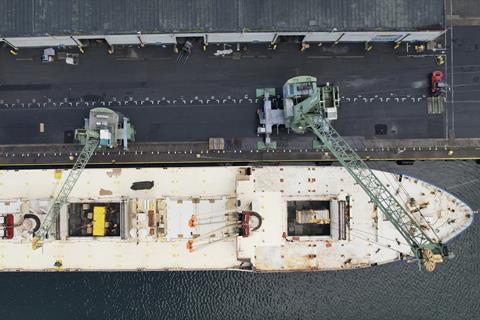Port says that strong container throughput restricted downturn in an “eventful” first quarter of 2025

The Port of Antwerp-Bruges has revealed that it handled 67.7mn tonnes of cargo in the opening quarter (Q1) of 2025, a drop of 4 per cent compared with the same period last year.
The decline was, the port noted, largely driven by a sharp decrease in bulk volumes, while container throughput recorded growth.
”Antwerp-Bruges continues to navigate global challenges such as shifting market dynamics, geopolitical tensions and the ongoing pressure on the European chemicals sector,” it stated.
”With the United States as its second-largest trading partner, Port of Antwerp-Bruges is closely watching the evolving trade environment, as future tariff impacts become more pronounced.”
Container throughput served as a key growth engine in the first quarter, Antwerp-Bruges said, rising 4.6 per cent in tonnage and 4.5 per cent in TEUs compared to the same period of 2024.
This came despite geopolitical uncertainties and container alliance restructuring.
The transition to the new alliances and strikes and congestion at other ports had, however, resulted in longer container dwell times and therefore put increased pressure on terminal capacity.
Port of Antwerp-Bruges’ market share in the Hamburg-Le Havre Range increased to 30.5 per cent in 2024, and on a global level, the port climbed from 15th to 14th place in the ranking of the largest container ports.
The impact of US import duties on traffic in Port of Antwerp-Bruges remained limited, the port said.
In addition to trade tensions with the US, the European economy, and the industrial sector in particular, was struggling with structural problems that were ”seriously undermining its competitiveness”, while the logistics chain remained “vulnerable”.
“We are in particularly uncertain times, which makes it difficult to predict what 2025 will bring next,” said Jacques Vandermeiren, CEO at Port of Antwerp-Bruges. ”But as in previous crises, our port is showing resilience and operational reliability.
”That stability is critical, both for our customers and for the broader economy,” he noted.
”At the same time, the protectionist measures taken by the United States make it clear that Europe needs to make a stronger commitment to robust economic policies in order to strengthen our industry and anchor its strategic position.”



